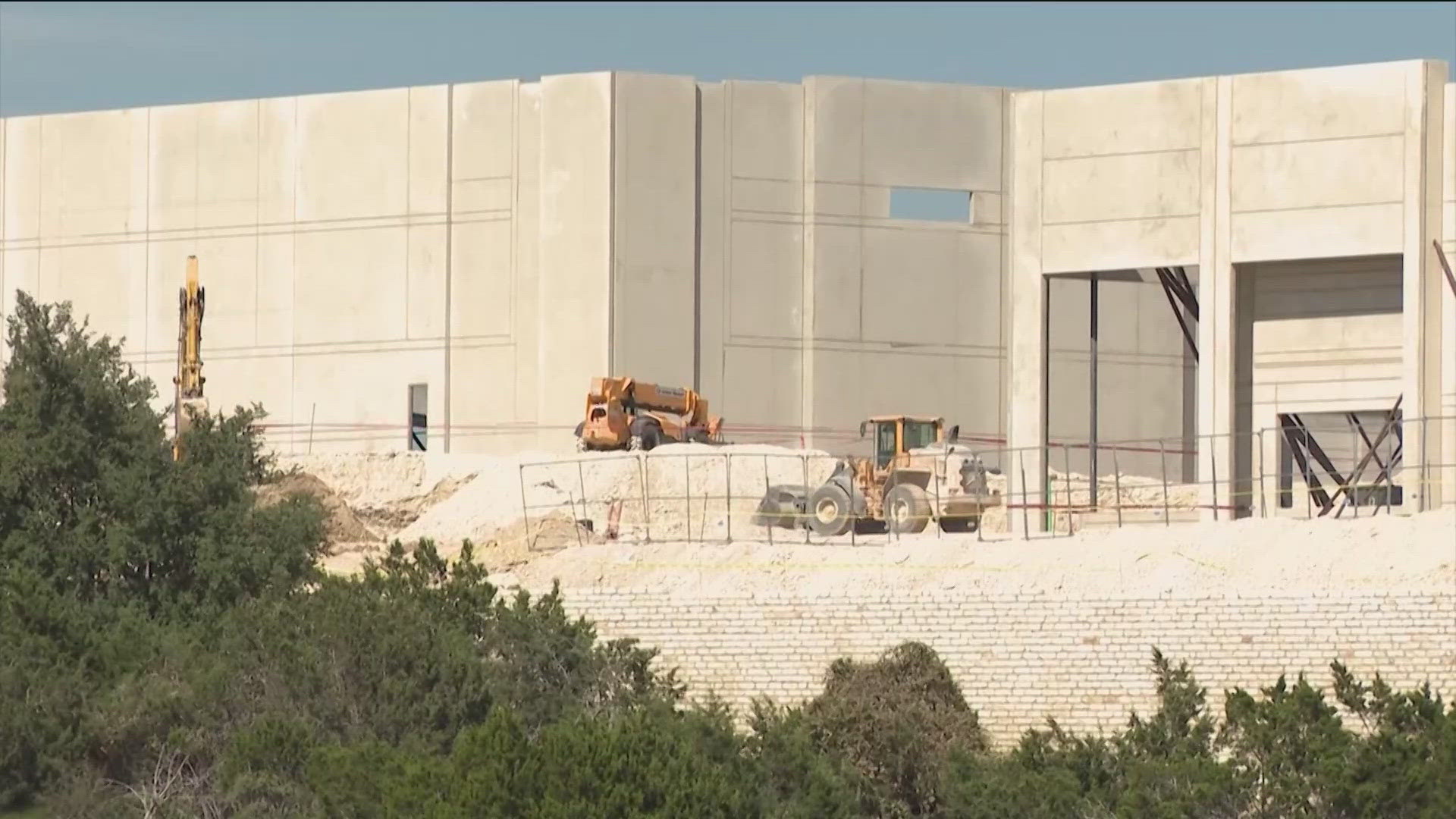BEE CAVE, Texas — The city of Bee Cave and developers are still battling it out in a Travis County court over the development of a warehouse in the city’s extraterritorial jurisdiction.
On Tuesday, dozens of residents and supporters packed a Travis County courtroom to fight for a second temporary restraining order on the development project.
Residents claim the construction is creating major noise and light pollution and could be detrimental to the neighborhood once it’s completed.
“They feel like their wellbeing, their safety is really at stake in this case,” said Crystal Cotti, the director of communications for Bee Cave.
Last month, a Travis County judge granted a temporary restraining order that would halt construction on the development for 14 days. Those fighting the project are hoping to put a pause on it until they can go to trial, but that is not estimated to happen until spring 2025.
Back in 2015, Bee Cave entered into a development agreement with a group of developers nicknamed “Wheelock” for 400 acres of land in the city’s extraterritorial jurisdiction, known as the Eastland Tract. The city claims the agreement was to create a mix of residential homes, commercial spaces and recreational amenities – but from what they’ve observed, that’s not all that’s been constructed.
Recently, concerns have been raised about what they say looks like a manufacturing distribution facility with 80 bays for 18-wheelers near the Madrone Canyon homes and other neighborhoods.
“This is the Hill Country we're talking about. It's not a flat area,” Cotti said. “That adds additional safety concerns and the fear that there could be massive vehicle and 18-wheeler accidents happening right at the entry and exit point of this neighborhood.”
The defense has not commented on the lawsuit yet, but during opening statements, they argued that because the city hasn’t complained about any of the developments in the last nine years that the agreement has been in place, it seems like a political move to stop this development now that neighbors are upset.
The city and homebuilders in the nearby neighborhoods claim that everything constructed up until this point has been in cohesion with what was laid out in the development agreement.
“I think it’s important to keep in mind what else has gone up. We’re talking about a 7-Eleven, we’re talking about a car wash," Cotti said. "Is that the same as an 80-bay industrial development?”
The defense also claims that several of the nuisance claims the city is making are speculative because they refer to what it could be like when the construction of the facility is complete. They said those should not stand because the city doesn’t know exactly what the building will be used for yet.
Another one of the defense’s claims is over the city’s jurisdiction to even stop the construction in the first place. The defense argued that since other governmental agencies like Travis County, the Texas Commission on Environment Quality, the Design Review Committee, Lazy Nine MUD and Lake Travis Fire and Rescue all approved the development, the city can’t stop the construction that has been ongoing.
Developers claim that it would do more damage than good to stop the construction and that for every three months construction would be shut down, they would lose $1 million. But the plaintiffs argue that the impact on the neighbors is just as imminent.
“It’s impossible for it to not impact the surrounding communities,” said Willie Tejada, a resident of the Serene Hills neighborhood.
Tejada is one of the residents in the fight to protect his neighborhood. He moved into his home in Serene Hills about three years ago and was excited about the prospect of all the new developments in the area.
"When we saw the grading of the open space, quite honestly, I think there was a lot of enthusiasm in the community because we want retail and commerce, we want a vibrant community,” Tejada said.
But that enthusiasm quickly faded.
"It wasn't until the walls actually got stirred up that people realized that something very different was being installed there,” Tejada said.
During witness testimony on Tuesday, a Bee Cave police officer testified that a noise reader across the street from the development read 98.8 decibels when the limit at night is just 58. Plaintiffs are also worried about the environmental impact the construction could have with runoff from the project running into their environmentally sensitive zones like Little Barton Creek.
Each side still has several more witnesses to bring to the stand during this temporary injunction hearing, but the judge said they will have to continue it at a later date.
With a full docket, she is hoping to get back to this hearing on Tuesday, Nov. 26. Until that can all play out, the judge granted another temporary restraining order on the construction project.

